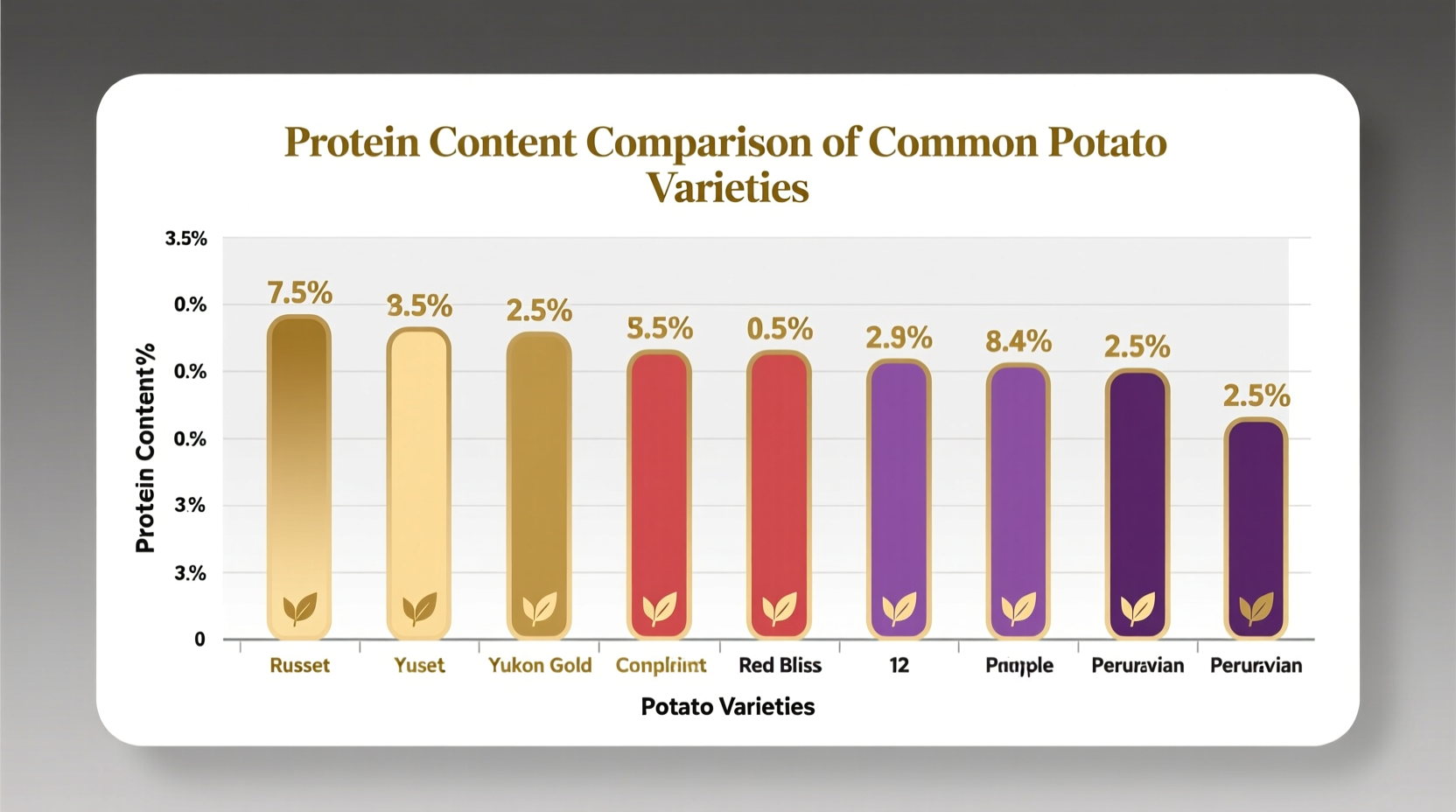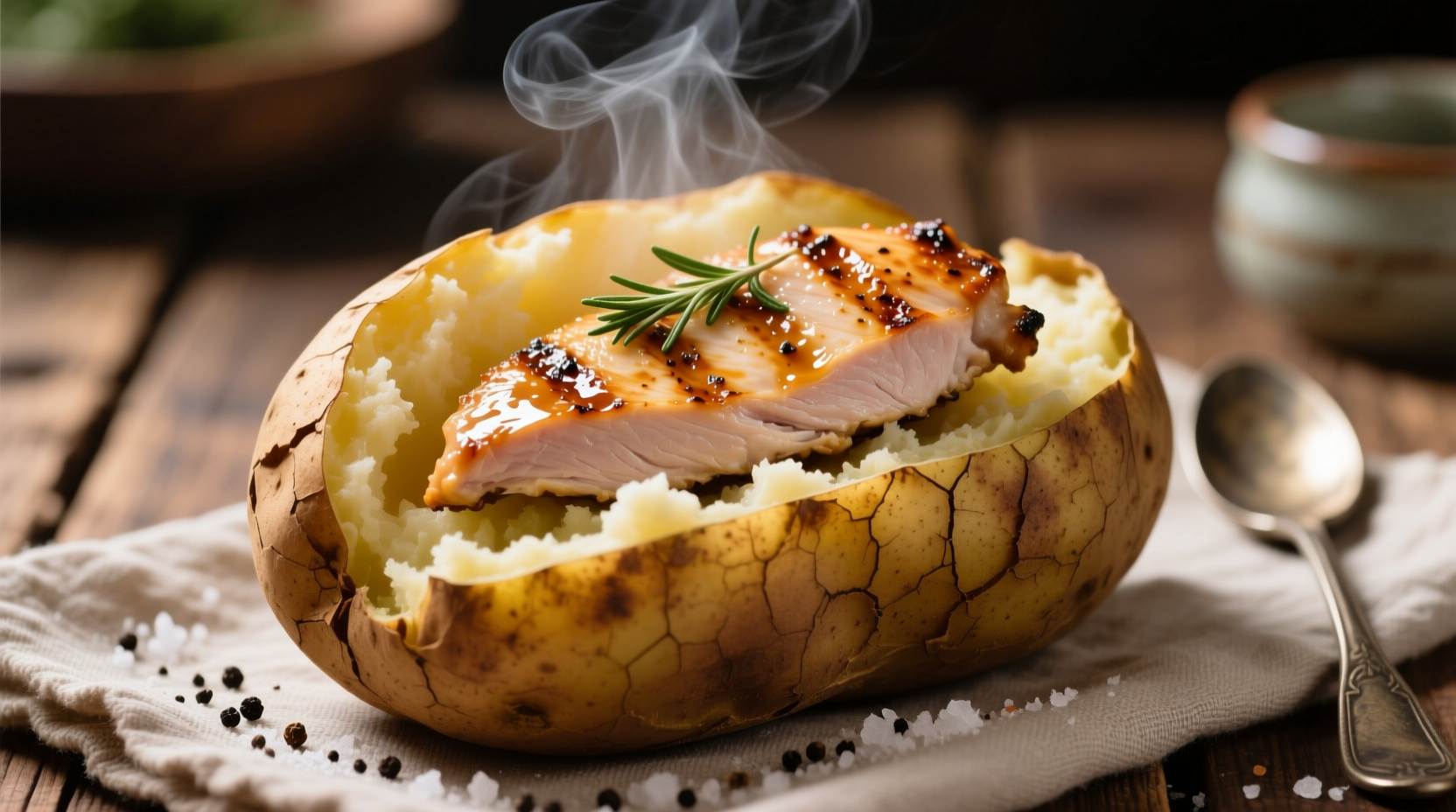When you're tracking your protein intake or exploring plant-based nutrition options, understanding the protein content in everyday foods like potatoes becomes essential. This comprehensive guide delivers scientifically verified information about potato protein content, quality, and practical applications for various dietary needs.
Understanding Potato Protein Content: The Basics
Many people overlook potatoes as a protein source, focusing instead on their carbohydrate content. However, potatoes do contain protein that contributes to your daily nutritional needs. According to the USDA FoodData Central database, the protein content varies slightly depending on potato variety and preparation method:
| Potato Type | Protein per 100g | Protein in Medium Potato (150g) |
|---|---|---|
| Russet (baked) | 2.5g | 3.75g |
| Red (boiled) | 2.0g | 3.0g |
| Sweet potato (baked) | 1.6g | 2.4g |
| Potato with skin | 20% more protein | Compared to peeled |
These values represent raw nutritional data before cooking. Interestingly, cooking methods affect protein concentration differently. Boiling can cause slight protein leaching into water, while baking concentrates nutrients as moisture evaporates. Keeping the skin on preserves additional protein and fiber.

Potato Protein Quality: Beyond Quantity
While the amount of protein matters, quality is equally important. Potato protein contains all nine essential amino acids, making it a complete protein source—though in varying proportions. The limiting amino acid in potatoes is methionine, which means pairing potatoes with foods rich in this amino acid (like grains) creates a more complete protein profile.
Research published in the Journal of Agricultural and Food Chemistry indicates that potato protein has a Protein Digestibility Corrected Amino Acid Score (PDCAAS) of 0.7-0.8, which is respectable for a plant-based protein source. For comparison, soy protein scores 1.0 (the maximum) while wheat scores around 0.4.
Practical Applications for Different Dietary Needs
Understanding how potato protein fits into various eating patterns helps maximize its nutritional benefits:
For Vegetarians and Vegans
While potatoes alone won't meet daily protein requirements, they contribute meaningfully to plant-based diets. A simple strategy: combine potatoes with legumes. Try these protein-boosting pairings:
- Potato and lentil curry (provides complete amino acid profile)
- Mashed potatoes with white beans (adds 7g protein per ½ cup)
- Roasted potatoes with chickpeas (creates balanced meal)
For Athletes and Active Individuals
Post-workout, potatoes offer both carbohydrates for glycogen replenishment and protein for muscle recovery. A study in the Journal of the International Society of Sports Nutrition found that consuming potatoes after exercise supported similar recovery metrics as sports drinks, with the added benefit of natural protein and nutrients.
For Weight Management
The protein in potatoes contributes to satiety. Research from the University of Leeds demonstrated that boiled potatoes rank highest on the satiety index—more filling than pasta or rice—partly due to their protein and resistant starch content.
Contextual Limitations: When Potatoes Aren't Enough
While potatoes provide valuable protein, they shouldn't be your primary protein source. Understanding these context boundaries helps optimize your nutrition:
- For high-protein diets: You'd need to eat 10-12 medium potatoes to reach 30g of protein, which would exceed recommended carbohydrate intake for most people
- For muscle building: Potatoes lack sufficient leucine (the key trigger for muscle protein synthesis) compared to animal proteins or soy
- For medical conditions: People with kidney disease following protein-restricted diets should consult their healthcare provider about appropriate potato consumption
Maximizing Potato Protein Benefits
Simple preparation techniques can enhance the protein value of potatoes:
- Keep the skin on: The skin contains additional protein and fiber
- Pair strategically: Combine with complementary protein sources like beans, lentils, or whole grains
- Avoid excessive processing: Mashed potatoes with minimal added fats preserve more nutritional value than fried versions
- Try potato protein powder: For concentrated protein, some health food stores offer potato protein isolate (about 80g protein per 100g)
Common Misconceptions About Potato Protein
Several myths persist about potatoes and protein. Let's clarify:
- "Potatoes are just empty carbs": False—potatoes provide protein, vitamin C, potassium, and B vitamins
- "Sweet potatoes have more protein than regular potatoes": Actually, regular potatoes contain slightly more protein per serving
- "All cooking methods destroy potato protein": While some protein denatures with heat, the nutritional value remains largely intact
Practical Protein Planning with Potatoes
For meal planning, consider these realistic scenarios:
- Breakfast: Hash browns with black beans and eggs (15g protein)
- Lunch: Potato and lentil soup (12g protein per serving)
- Dinner: Roasted potatoes with chickpeas and spinach (14g protein)
These combinations transform potatoes from a side dish into a meaningful protein contributor. Remember that variety remains key—potatoes work best as part of a diverse protein portfolio rather than a standalone solution.











 浙公网安备
33010002000092号
浙公网安备
33010002000092号 浙B2-20120091-4
浙B2-20120091-4